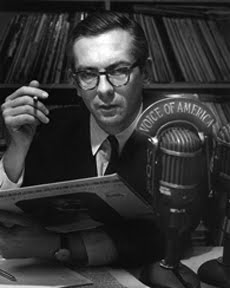In a sharp contrast to media mogul Rupert Murdoch, a little-know but wealthy Mexican billionaire named Carlos Slim has become a significant stakeholder in the New York Times Company. Unlike Murdoch, who likes a “hands on” approach to his media holdings (New York Post, Dow Jones Company, Wall Street Journal, etc.), Slim indicates that he has no plans to become involved in day-to-day dealings at the struggling newspaper.
 The 68-year-old Slim made his fortune by buying inexpensive properties and then turning them into valuable investments. He’s best-known as owner of TelMex, the largest phone company in Mexico. He has begun turning over operation of TelMex to his sons, apparently in a move to begin easing out of decision-making roles. This is consistent with his approach to his 6.4 percent stake in the Times. He has reportedly become quite a philanthropist, too. With holdings near $60 billion, that's not surprising -- but good to hear.
The 68-year-old Slim made his fortune by buying inexpensive properties and then turning them into valuable investments. He’s best-known as owner of TelMex, the largest phone company in Mexico. He has begun turning over operation of TelMex to his sons, apparently in a move to begin easing out of decision-making roles. This is consistent with his approach to his 6.4 percent stake in the Times. He has reportedly become quite a philanthropist, too. With holdings near $60 billion, that's not surprising -- but good to hear.
Interestingly, Slim lists Warren Buffett, “the sage of Omaha,” as someone he admires. With New York Times ad revenue down by 14 percent during the first half of this year, perhaps Slim -- like Murdoch at the Wall Street Journal -- will be tempted to offer advice, although it would have to resonate strongly in the ears of the Ochs-Sulzberger families, which apparently still control 70% of the Times.
Newspapers across the country continue their struggles to survive. Gannett Company said last month that they’re cutting some 1,000 newspaper jobs, and closer to home, Lee Enterprises is paring jobs in Montana, Wyoming and South Dakota.
 The 68-year-old Slim made his fortune by buying inexpensive properties and then turning them into valuable investments. He’s best-known as owner of TelMex, the largest phone company in Mexico. He has begun turning over operation of TelMex to his sons, apparently in a move to begin easing out of decision-making roles. This is consistent with his approach to his 6.4 percent stake in the Times. He has reportedly become quite a philanthropist, too. With holdings near $60 billion, that's not surprising -- but good to hear.
The 68-year-old Slim made his fortune by buying inexpensive properties and then turning them into valuable investments. He’s best-known as owner of TelMex, the largest phone company in Mexico. He has begun turning over operation of TelMex to his sons, apparently in a move to begin easing out of decision-making roles. This is consistent with his approach to his 6.4 percent stake in the Times. He has reportedly become quite a philanthropist, too. With holdings near $60 billion, that's not surprising -- but good to hear.Interestingly, Slim lists Warren Buffett, “the sage of Omaha,” as someone he admires. With New York Times ad revenue down by 14 percent during the first half of this year, perhaps Slim -- like Murdoch at the Wall Street Journal -- will be tempted to offer advice, although it would have to resonate strongly in the ears of the Ochs-Sulzberger families, which apparently still control 70% of the Times.
Newspapers across the country continue their struggles to survive. Gannett Company said last month that they’re cutting some 1,000 newspaper jobs, and closer to home, Lee Enterprises is paring jobs in Montana, Wyoming and South Dakota.





